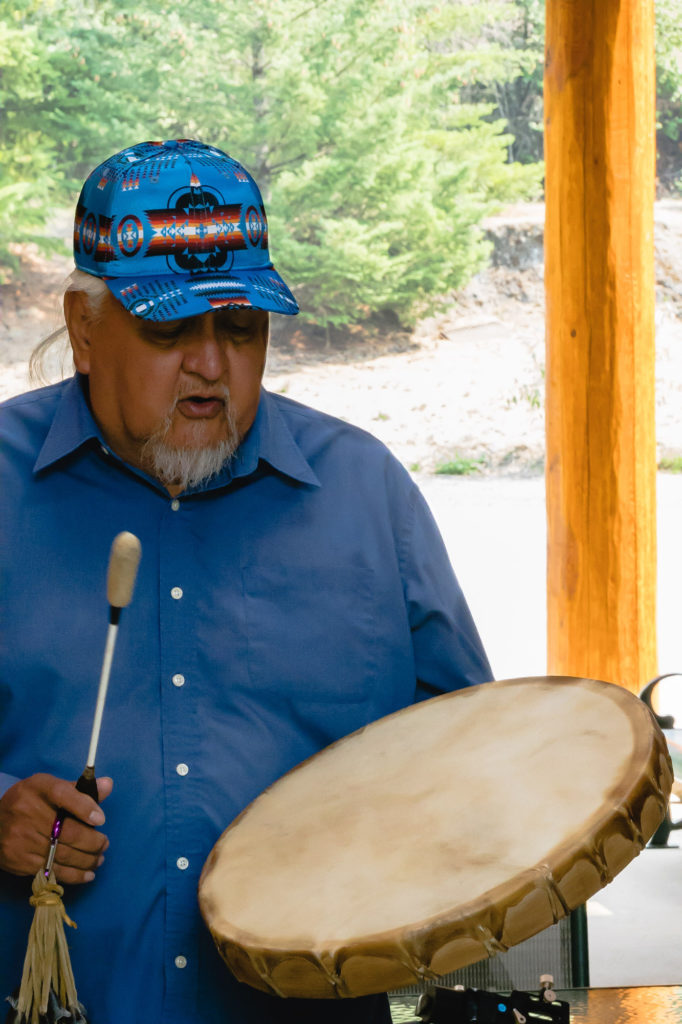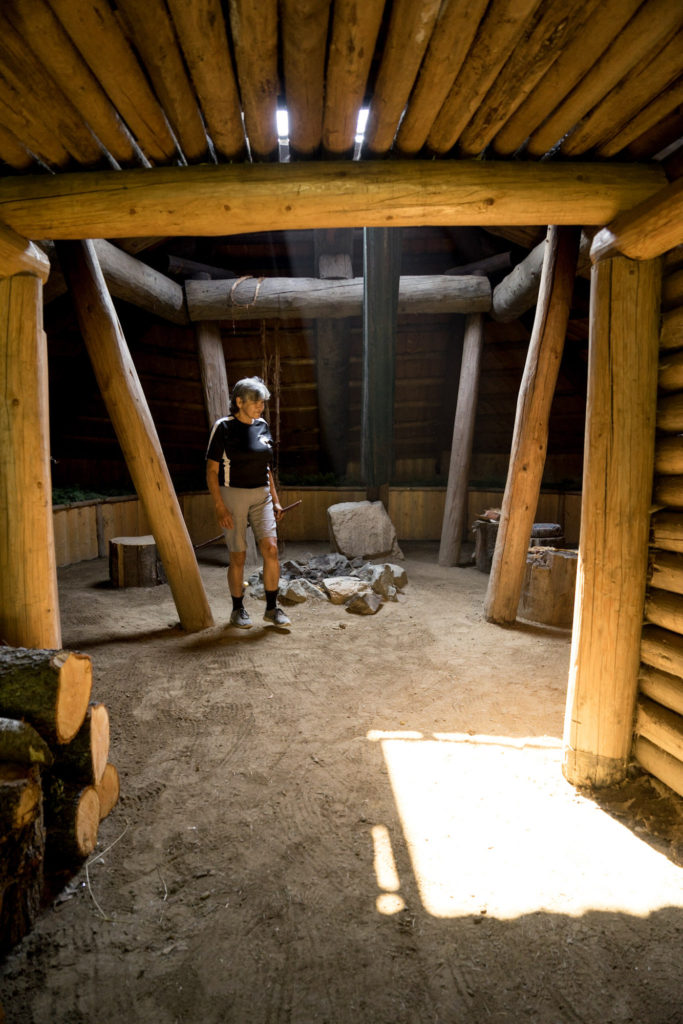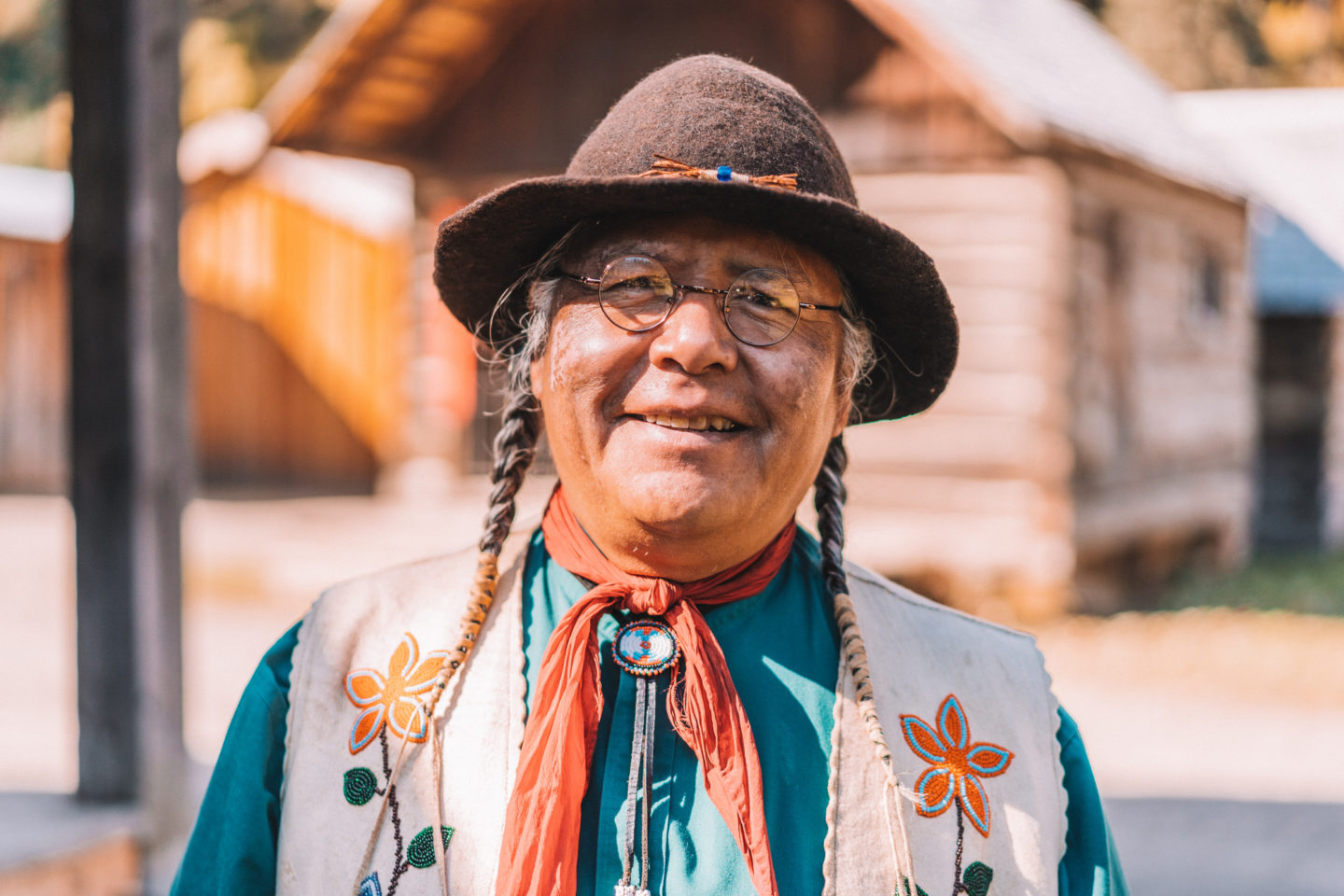This story has been shared with us from the Nlaka’pamux (Ingla-kap-ma) Indigenous peoples of Tuckkwiowhum Heritage Village (Tuck-we-ohm). All thoughts, teachings, and stories reflected below are in their words.
Do you know why Indigenous men and boys are encouraged to grow their hair long? Although the cultures and traditions of Indigenous Peoples are diverse, the importance of long hair is the same for all Nations.
We are grateful to have recently spent some time with Knowledge Keeper Ernie Michel who shared his teachings.
By Nlaka’pamux elder Ernie Michell
“My youngest grandson (7 years old) just cut his hair; he was getting teased in school. First Nations boys get teased a lot, get called girls. It happened to my two sons in elementary school too. ‘No,’ we said, ‘Your hair is important; that’s your connection to the land. Hair is your strength; it’s the teaching that’s been passed down from generation to generation. It’s who you are. It’s your spirit’. The longer your hair is, the more connected you are to the land.”
“Both my grandsons have had their hair cut now. They were feeling bad: ‘They tease me. Kids don’t want to play with me’. My grandson had beautiful hair, it was long and thick. I used to braid it for him. It saddened me; made me cry. Sometimes the harshest teasing comes from other First Nations kids. It comes down to what they were taught. Some kids come from abusive homes; drug and alcohol abuse. All that makes them who they are.”
“When I was in my mid twenties, I used to cut my own hair. I was in that space where I hated myself and my life so I cut my hair. My mom got really mad. She said, ‘When you cut your hair, you’re asking for the bad to come’. I got to thinking about that and started to grow it again.”
“I’ve been on the Powwow trail for more than forty years now. Back in the day, all young men had long braids and I wanted to grow my hair like that. I had these little braids, pigtails, that stuck out behind my ears”, Ernie chuckled at the memory. “They teased me a little but said, don’t give up. In time my braids got very long”.
“When you have one braid down the back, it follows the spine. That’s where your strength is. Your connection. I believe that. I was reading a little write up on the US army. When you join up, first you get a buzz cut. First Nations always fought. This psychologist said they would do a test. One half had all their braids cut off. But first they sent them out hunting and they were really successful. The other group [with shaved heads] felt lost out in the bush, uneasy, like they didn’t belong. Those with hair were calm, one with nature. The army realized there was significance to those braids”. […nothing changed]

“It’s only been since the residential schools that young men get their hair chopped off. I think they knew [residential schools] that if they took our hair, they’d break our spirit. In a sense, they did. A lot of men today are still suffering. That connection is gone. Nobody has braids anymore. It’s rare. My two boys, Red Hawk and Charlie, are the only ones who have really long hair past their waists, but their friends up North have long hair.”
“Nobody is allowed to touch our hair other than immediate family. When my sons or wife are approached by people who want to touch their hair. ‘No’, they say, ‘I don’t know what state you’re in [energy]’. I braided my granddaughter’s hair this morning. I only think of positive things and ask the Creator to watch over her, give her the strength to carry on in this life. It’s like meditation. I never braid my kids’ hair when I’m angry.”
“There are times we’ll cut our hair. When parents pass away, the family gets together. That’s the only time. The hair is braided and wrapped in red cloth. When our hair grows back all the teachings will return. We go up into the mountains and find a young fir tree. We cut into the tree, bend it over and put the braid in the cut; then we bind the tree. As long as it grows, the teachings will grow. I cut my hair another time; after my sister passed from cancer. We donated our hair to Cancer. When your spouse passes, you can cut your hair then too.”
“Sometimes people cut their hair for a new beginning. If they’ve had a rough life. Maybe drug and alcohol abuse. That’s a reason to cut the hair: to get rid of the toxicity and negativity. It’s a new start.”
“Having long hair also applies to women. It’s their identity. As I braid the strands, I think body, mind and spirit; as well as past, present and future. It’s all intertwined. When a child is born, we believe you should let their hair grow. That’s their spirit. This is what I was taught but everyone is different. It all depends on your teachers. Every nation has different teachings but long hair means the same to all. Spirit. Strength. Connection. Identity.”
“I’d like to see more men in our nation grow their hair. Find their identity; take back their strength, their power. It’s their connection to the past and the future and it’s important to carry these teachings forward so the 7th generation will have the connection to the land, to the ancestors and be just as strong as we are”.
Our thanks to Knowledge Keeper Ernie Michell ~ Tuckkwiowhum Heritage Village
Tuckkwiowhum Heritage Village is a First Nations heritage site and village located in Nlaka’pamux territory, 5 km south of Boston Bar, British Columbia. Tuckkwiowhum offers guests an immersive experience into Nlaka’pamux culture and traditions for a glimpse of what life was like before European contact. Located in the Fraser Canyon, the heritage village offers breathtaking views and the chance to learn from local elders and knowledge-keepers. Experience a tour, camp, or stay overnight in one of their authentic teepees. To learn more or book an experience, visit www.tuckkwioiwhum.ca

